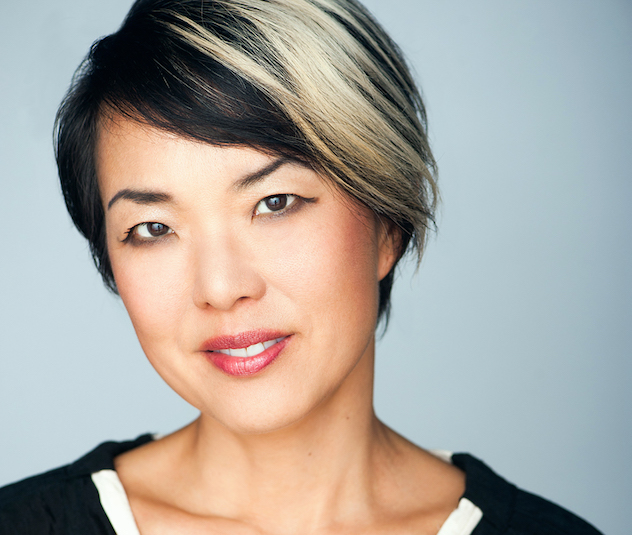For struggling actors yearning for their break, the casting director holds considerable power. It’s her job to sift through hundreds of names and headshots to find the right talent to bring a character to life.
“When you watch an actor’s interpretation unfold, sometimes they bring things to the table that you didn’t anticipate,” Julia Kim said. The independent casting director, who has worked in the biz since the ’90s, stole a moment after an exhausting day of auditions to speak to KORE. “It’s that golden nugget, that diamond in the rough, that you’re looking for. You set up 30 people for the day, and you find one person that nailed it or brought you something that was magic in the room.”
Kim has brought that magic to many of her projects, such as the 1999 cult comedy classic “But I’m a Cheerleader” starring Natasha Lyonne, about a girl sent to a re-education camp to get the lesbian brainwashed out of her. With a cast that included Dante Basco, RuPaul and Cathy Moriarty, “But I’m a Cheerleader” also celebrated diversity behind the camera by including Kim in a key decision-making role: co-casting director.
More recently, she cast the atmospheric coming-out and coming-of-age arthouse film by Andrew Ahn, “Spa Night,” which won the Independent Spirit John Cassavetes Award. And lead Joe Seo went on to win the Breakthrough Performance award at the Sundance Film Festival in 2016. Kim’s work attracted the attention of Brad Pitt’s production company Plan B, who brought her on to cast “The Last Black Man in San Francisco,” an upcoming film about two African Americans hanging on to their property amid rapid gentrification.
Kim understands that actors of Asian descent have challenges, which is why she formed InvAsianLA. It helps first-generation parents understand that acting can be a plausible, as well as economically viable, choice for their second-generation offspring. InvAsianLA also works as a liaison and consultant between Asian producers and studios and U.S. producers and directors to bridge those two markets.
Born and raised in Los Angeles to parents who emigrated from South Korea, Kim grew up loving movies. Her first job was in production at an animation studio, which led to a desire to work in live-action. She was also interested in becoming an actor, but an internship at a big casting director’s office derailed that plan.
Working for big Hollywood was edifying, but her heart belonged to indies. “I worked my way into becoming my own independent casting director,” she said. “Independent film is love for me, because I believe the stories being told are interesting and diverse and reflect so many different scenarios that life brings, and I really find that work very rewarding. I find we have an opportunity to discover a lot of emerging talent. I grew up in a melting pot, so it’s great to see that melting pot being reflected on-screen.”
Kim said that the landscape for Asian American actors is better than ever. They’re sought for roles that tell all kinds of stories. “I’m able to now include Asian names on the list that is meaningful for funding or means something on the marquee,” she said. “When I was an assistant casting in the mid-’90s, there was a very short list that had, like, Jackie Chan and a few others. Now I’m able to include people like the Steven Yeuns, the John Chos, the Awkwafinas and the Jamie Chungs. The list is exponentially longer for me to be able to go, ‘How about this person?’ When you attach somebody to a key role, then the other attachments fall into place. And it’s exciting to say Asian actors are on that list now.”







